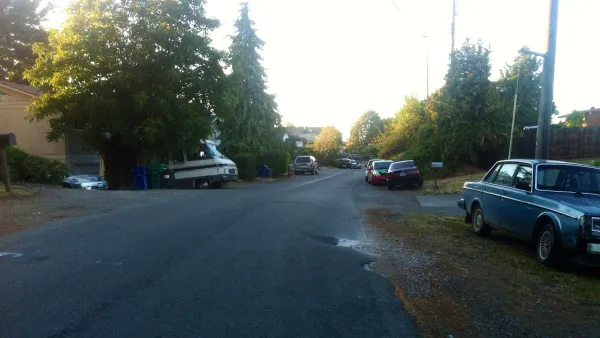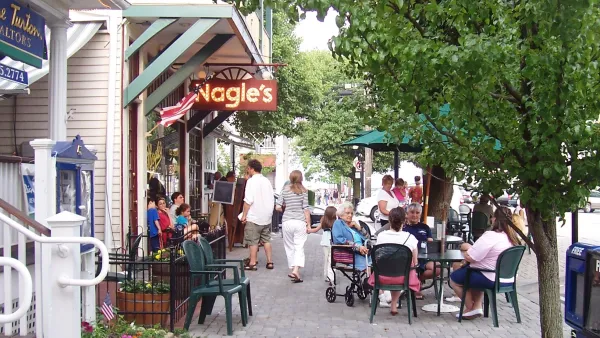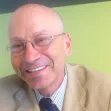Public Health
With Vote by City Council, Sacramento to Become Healthier and More Bike Friendly
More bike corrals, bike sharing, and parklets are on the way to the Golden State's capital thanks to the city council's unanimous vote on Oct. 22 with support from cyclists, pedestrians, businesses, and the regional air district.
Accidents Not the Leading Cause of Vehicle-Related Deaths
A new study by MIT researchers indicates that a greater number of premature deaths in the United States can be attributed to auto pollution than auto collisions.
Strict Standards for Ship Emissions Cleanse Bay Area Air
Thanks to a Calif. law implemented in 2008 requiring ocean-going ships to switch from high-sulfur bunker fuel to cleaner fuels within 24 miles of the coast, Bay Area air quality significantly improved by reducing deadly particulate emissions.
Will Obamacare Have an Impact on Urban Spaces?
Now that the dozens of repeal votes, budget battles, and court cases have failed to prevent the launch of the Affordable Care Act, we can turn our attention to its potential impacts. For cities and urban space, the Act's effects could be significant.

A Fight Over the Future of "America's 'Most Livable' Community"
LA's trendy Silver Lake neighborhood "is going through a full-blown, divisive identity crisis." Amid trendy boutiques and million dollar homes are bastions of poverty and crime. Activists are divided on how to define, let alone address, its problems.
Cut Emissions to Save Lives, If Not the Planet
Even if our warming planet wasn't threatened with environmental catastrophe, the case for reducing fossil-fuel use is an easy one to make. A new study shows that reduced air pollution from cutting emissions would save millions of lives by 2100.
More Physical Activity and Better Diets Leading to Less Teenage Obesity
In another sign that efforts to reduce childhood obesity may be having an impact, a new study published in the journal Pediatrics has found increases in physical activity and the consumption of healthy foods among 11 to 16-year-old Americans.
ASLA Assembles Reservoir of Resources on Health Benefits of Nature
For years, science has been catching up to the intuitive wisdom that spending time in, or adjacent to, nature has physical and mental health benefits. The ASLA has collected a trove of this research in one easy to navigate website.

Philly Swaps Squad Cars for Foot Patrols
Philadelphia's police force has increased the proportion of police on foot in its most violent neighborhoods. Not everyone likes the new presence, but the change has has achieved remarkable reductions in violent crime.
Walking While Distracted: Pedestrian Injuries Rise Amongst Teens
A study finds that 20% of high school students cross the street while being distracted by a digital device.
EPA Move to Monitor Roadway Air Pollution May Have Broad Planning Impacts
With evidence on the harmful health impacts of vehicle emissions increasing, the EPA will begin monitoring pollution levels adjacent to freeways in Los Angeles and more than 100 of America's biggest cities. Experts say the action is long overdue.
Effort to Reduce Food Deserts Finds Spring of Success in Chicago
Chicago has good news to report in its battle to improve access to fresh healthy food. Since Rahm Emanuel became mayor more than two years ago, the number of residents living in food deserts has declined by 21 percent.
New Study: Effects of Obesity Epidemic Much Worse Than Previously Reported
A new study published this week in the American Journal of Public Health links 18.2 percent of premature deaths in the United States between 1986 and 2006 to obesity, a nearly fourfold increase over what had widely been cited.
Bike and Ped Programs Among Bloomberg's Greatest Achievements, Say New Yorkers
In a wide-ranging poll looking back at the 12-year tenure of Mayor Bloomberg, New Yorkers overwhelmingly approved of his bike/ped and public health programs, but found his attempts to reform the city's schools and ban sugary drinks objectionable.

To Control Health Costs, Build Sidewalks
Each month new research emerges linking public health with the built environment. Yet just a small fraction of healthcare spending goes toward reducing our exposure to unhealthy environments. Under the Affordable Care Act, that could soon change.
Rational Fear
Many people believe that cities are dangerous due to exaggerated fears of urban crime. Cities are actually far safer and healthier than suburban and rural locations, and smart growth policies can further enhance their safety and health advantages.

Why Don't We Allow Designers to Create Cites for People?
Cars kill us and drive us crazy; while walking and biking improve our mental and physical health. So why do we design our cities for cars, asks Jeffrey Tumlin.
New Report Quantifies Coal's Role in Reducing Chinese Longevity
An NAS study released July 08 shows that if you live in north of the Huai River in China, you can expect to live about 5.5 years less than those to the south. Air pollution, specifically particulate matter from burning coal, is the primary culprit.
Bloomberg's Newest Health Crusade: Taking the Stairs
Thanks to an executive order issued this week, New York City's government buildings will become another tool in Mayor Michael Bloomberg's multipronged effort to fight obesity.
Focusing a Place-Based Lens on America's Health Disparities
In the U.S., were used to comparing our life expectancies with other countries, says Emily Badger, but in many cities one only needs to travel a mile to see decades of difference in average life spans. Stark new maps make these discrepancies clear.
Pagination
Urban Design for Planners 1: Software Tools
This six-course series explores essential urban design concepts using open source software and equips planners with the tools they need to participate fully in the urban design process.
Planning for Universal Design
Learn the tools for implementing Universal Design in planning regulations.
EMC Planning Group, Inc.
Planetizen
Planetizen
Mpact (formerly Rail~Volution)
Great Falls Development Authority, Inc.
HUDs Office of Policy Development and Research
NYU Wagner Graduate School of Public Service


































